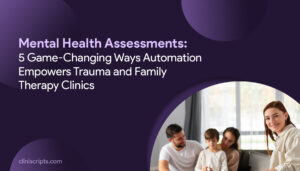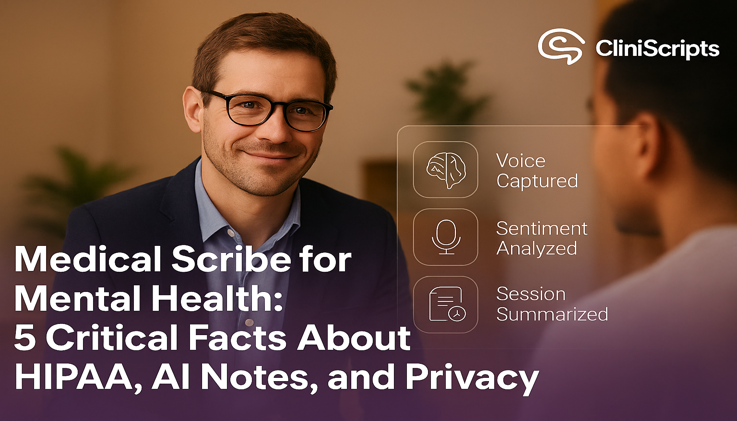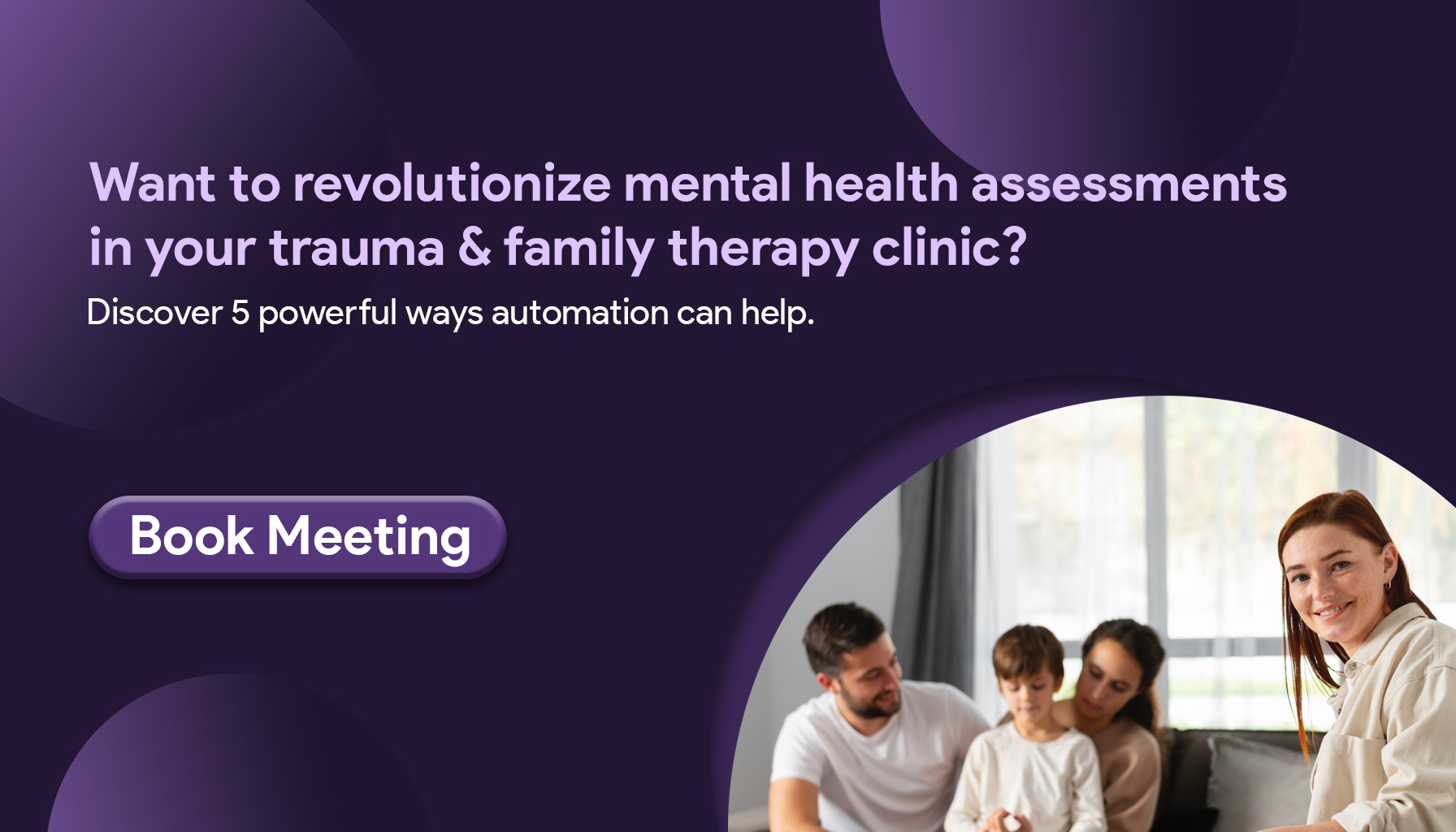Reviewed by Nauman Jaffar
Image Credit Canva

Medical scribes for mental health solutions are rapidly transforming how clinics document therapy sessions. As artificial intelligence continues to integrate into clinical workflows, more practices are adopting AI-powered tools to handle therapy notes, reduce burnout, and streamline compliance. But with this digital shift come urgent concerns—particularly around privacy, security, and HIPAA compliance.
For mental health professionals, where Missions often involve highly personal and emotional disclosures, protecting client confidentiality is both a legal and ethical obligation. This article outlines five essential things clinics must know when using AI-assisted documentation tools—especially those functioning as medical scribe systems.
1. Medical Scribes in Mental Health: HIPAA Rules Still Apply
A medical scribe, whether human or AI-powered, is subject to the same HIPAA compliance requirements as any clinician or administrator. When applied in therapy settings, these tools often handle protected health information (PHI) in real time, sometimes even transcribing direct session audio.
Unlike general healthcare, mental health transcription services must handle data with added sensitivity. AI scribes that transcribe audio to text from therapy sessions need end-to-end encryption, secure cloud storage, and audit logging. Without these protections, clinics risk both client trust and federal penalties.
2. AI Therapy Notes Must Be Purpose-Built for Mental Health
A generic transcription tool isn’t enough. Therapy notes require nuance—capturing clinical tone, recognizing psychological terms, and supporting documentation formats like SOAP or DAP. Unfortunately, many widely used AI tools were built for general productivity use and miss the mark when applied in a therapeutic setting.
The right therapy transcription services will offer mental health–specific templates, intelligent note structuring, and language models that understand emotional and clinical contexts. This isn’t just about convenience—it’s about reducing documentation error and improving continuity of care.
Medical scribe for mental health solutions are rapidly transforming how clinics document therapy sessions. As artificial intelligence continues to integrate into clinical workflows, more practices are adopting AI-powered tools to handle therapy notes, reduce burnout, and streamline compliance. But with this digital shift come urgent concerns—particularly around privacy, security, and HIPAA compliance.
For mental health professionals, where sessions often involve deeply personal and vulnerable disclosures, choosing the right AI transcription or documentation tool isn’t just a matter of efficiency—it’s a legal and ethical decision.
If you’re looking for a detailed breakdown of the risks and benefits of AI in mental health settings, this Quora article named 5 Critical HIPAA Mental Health Facts Every Clinic Must Know About AI Notes and Privacy offers a thoughtful perspective on how clinics can balance innovation with patient privacy.
This article explores five critical facts every clinic should know before implementing AI tools that function as a medical scribe for mental health.
3. From Note Taking to Therapy Aid: AI’s Potential
When implemented correctly, AI doesn’t just support note taking—it becomes a form of therapy aid. By reducing administrative strain, it allows clinicians to stay present with clients. Some AI scribes even suggest phrasing based on the content of previous sessions or provide summaries for easier review.
However, this convenience must never come at the cost of privacy. Any such tool must be HIPAA-compliant and transparent about how it processes and stores data. Clinics should ask if transcripts are used to retrain the AI model—and whether clients’ PHI is ever exposed to third parties.
4. Transcription Accuracy Is a Legal and Clinical Matter
AI scribes that transcribe audio to text must do more than convert speech—they must do so accurately and securely. Misinterpretations in mental health can affect billing, treatment plans, or even legal cases. A missed nuance or clinical term can compromise care quality.
Choose psychological transcription services that are built with behavioral health professionals in mind. Accuracy isn’t a luxury—it’s a compliance necessity. Clinics should test AI tools in real-world settings before deployment and review sample outputs regularly.
5. Secure Infrastructure Builds Client Trust
No matter how powerful your AI system is, if it’s not secure, it’s a liability. HIPAA compliance requires more than marketing promises. Clinics must ensure their mental health dictation services include U.S.-based secure cloud storage, role-based access control, and automatic audit logs.
Just as importantly, staff must be trained on proper usage—avoiding insecure downloads, email sharing, or storing notes on local devices. Even the best tool can be misused without the right policies and workflows.
Final Thoughts: AI in Mental Health Needs More Than Speed
Yes, AI can help modernize documentation and reduce burnout. But for mental health professionals, trust is the foundation of every interaction. Choosing the right AI-powered medical scribe tool means choosing to protect that trust.
If your clinic is exploring AI solutions for mental health transcription services, focus on these five areas: compliance, accuracy, security, clinical context, and ongoing training. The future of therapy relies not just on innovation—but on doing it right.
Looking for a truly secure medical scribe solution built for mental health?
CliniScrip is designed with extreme privacy in mind.
In addition to full HIPAA, PHIPA, and PIPEDA compliance, CliniScrip ensures no session data is stored—ever. That means your transcripts remain completely under your control, with zero long-term exposure.
CliniScrip combines security, mental health–specific intelligence, and seamless usability—so your clinic can document confidently, without compromise.










